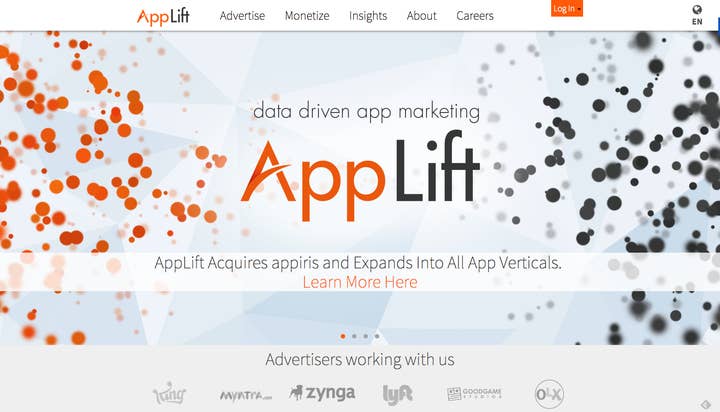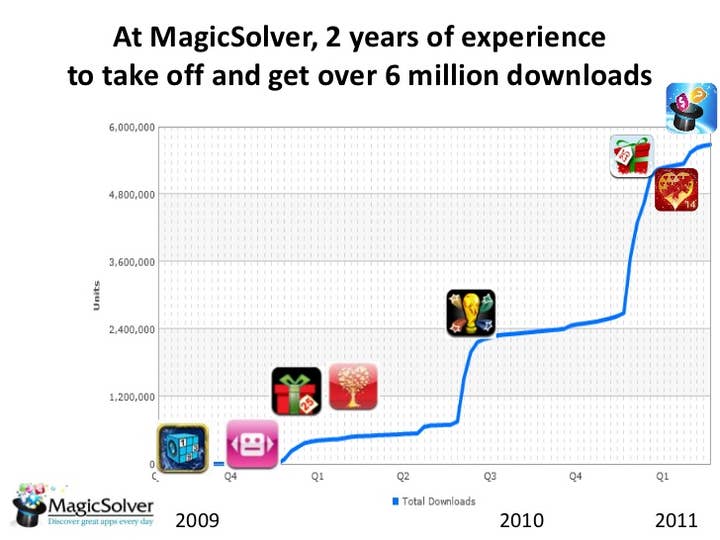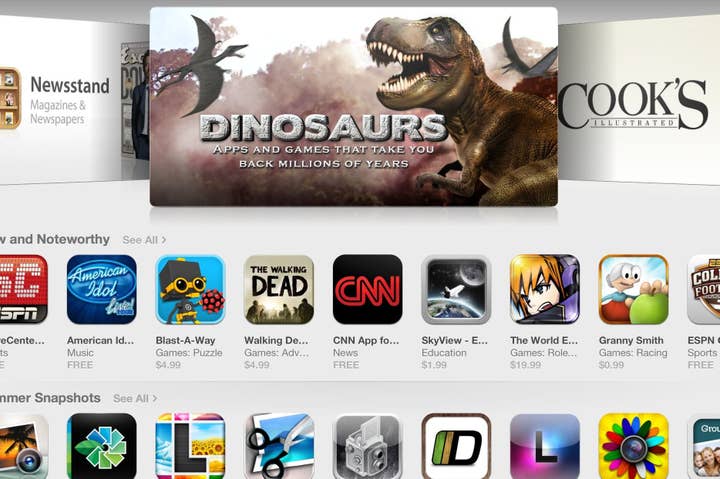The Curation Question
Can developers earn a crust on the App Store without Apple's aid?
A marketplace awash with opportunity and fortune, or a store where all but the lucky few go to die? For as long as the App Store has been on the radar, it's been branded as both such things in equal measure. However, there's one party who we can say in all certainty has enjoyed unquestionable success thanks to this mobile monolith: Apple.
The firm has just enjoyed the most profitable quarter by any public company in history and, as this article stretches across the screen of my laptop, has also just seen its market value surpass $700 billion - another world first. Have-a-go historians will pin the company's recent earth-shattering success on the launch of the iPhone in 2007, but there's weight to the suggestion that it was the roll out of the App Store a year later that really fired Apple's engines.
For the leagues of developers who populate that App Store, its continued success is as much of a curse as it is a blessing. It remains the default marketplace for almost all mobile developers, having pioneered the model that Google, Microsoft and BlackBerry were only too happy to cherry-pick from when launching their own respective marketplaces. The success of the App Store - and 'success' seems like an especially tame way of describing it - draws in developers like moths toward flame, but it's no exaggeration to note that it burns more studios than it lights up.
That's because, with more than a million apps on the store (almost a third of which are games) the majority struggle to find an audience, lost in the noise as the marketplace's big boys capture all the downloads. The argument is that those who do find life on the App Store lucrative have one thing in common: they've been featured by Apple.
"The only effective way to get traction in any of the stores is through an Apple or Google feature, but this is obviously very hard to obtain"
Thomas Sommer - AppLift
Though once there were third-party options designed to push your game up the charts, most have seen their operations quashed by the Cupertino giant in recent years with Apple clamping down on services it perceives as 'gaming' its charts. The result of that - whether intended or not - is that Apple is the Kingmaker, able to determine who makes it and who doesn't (with a few exceptions) on its store.
"It is extremely hard to get discovered on the App Store today, and not just for indie developers," Thomas Sommer, who heads up the Content Marketing department at mobile marketing specialist AppLift, tells me. "The only effective way to get traction in any of the stores is through an Apple or Google feature, but this is obviously very hard to obtain." Indie developers should get in the habit of "optimising their app store presence" and tailoring their game for the platform in question's unique selling point in hope of capturing the attention of the platform holder for a feature spot, argues Sommer, but at the same time, they should "in no case make their success depend on it".

He continues, "I would in any case recommend putting a lot of effort into understanding what the platforms expect from developers. This has to do with the games themselves obviously, but also how they market them, both on their app page and off of it, such as on their website or through PR, etc. The App Store and Google Play guidelines should definitely be in amongst their bedside reading."
Sommer pitches Apple as the "toughest guardian of the gate", making the case that the company doesn't intentionally limit success to a relatively small batch of apps and games, but rather puts the experience of the consumer first: If a gamer has a bad experience with a game from the App Store, logic dictates that a portion of the blame will be thrown in Apple's direction.
"If a gamer has a bad experience with a game from the App Store, logic dictates that a portion of the blame will be thrown in Apple's direction"
"Apple places a lot of importance on the content published on the App Store," Sommer continues. "This sometimes results in creating a living hell for developers, but at the same time, at least from a technical point of view, the apps published on the platform are, usually, flawless. There is otherwise not much you can do about Apple's strict and sometimes questionable interpretation of their rules, but deal with it. Apple has managed to create a Gattaca-like, closed-circuit ecosystem and so far it hasn't worked out too badly for them."
The firms it has worked out badly for are those who attempted to offer an alternative. Between 2012 and 2014 a slew of firms offering curation platforms designed both to help consumers find apps they might otherwise miss and, in turn, help developers get discovered, were pushed off the App Store, with Apple giving very little guidance - out in the open, at least - as to just what rules had been broken. Most attention centred around a certain clause 2.25, which was designed to prevent apps operating as their own mini app stores within the App Store itself.
It was a rule that, in theory, could have been applied to any number of apps on the marketplace, but the most notorious casualty was French outfit AppGratis, which - having just been boosted by a $13.5 million strong funding round - was kicked off the App Store in spring 2013. The platform lived on via Android and it was neither the first nor last service to fall foul of clause 2.25 - popular platform AppShopper had run into similar trouble just a few months previous to AppGratis, but managed to relaunch itself on the marketplace in early 2013 by adding social sharing to its arsenal, with its makers claiming its redesign now complimented Apple's own discovery tools rather than took them on.
"To be honest, Apple are cold to work with if they don't like you"
George Osborn ex-Magic Solver
Rival MagicSolver, which was based out of Cambridge in the UK, wasn't so lucky. The company had a number of successful apps on the store designed to push games in various territories, it had pulled off successful partnerships with big names like Supercell, King, Wooga and EA, but its business had to be wound down at the start of 2014 after Apple had begun to block updates to its titles a year and a half earlier.
"To be honest, Apple are cold to work with if they don't like you," says George Osborn, who worked at MagicSolver during the company's successful, and latterly unsuccessful, run on the App Store. He claims initially the business had set out to "help people find great apps that were paid and had gone free," but quickly moved into simply helping developers jump up the charts once free releases became the norm.
"For the most part, developers were struggling to find enough users," he continues. "In the early days of MagicSolver, that meant enough users to generate a chart position that would get browsing consumers to download, and towards the end it was more about finding enough users who generated a return to support a free to play business. Ultimately, most free to play games live or die on whether they have enough scale to build upon the metrics. So I ended up finding that there were plenty of small developers who had a decent game who couldn't afford a campaign with us, who simply got blown away when DeNA, King or Supercell would happily slide $100,000 our way without much thought of return."

When Apple began blocking updates to MagicSolver's line up, Osborn says, his initial reaction was that it was "downright unfair", though interestingly his attitude has changed in the months since he left the company. "Now with a bit of hindsight and distance, I think Apple's broadly right to take the approach it does. Of course it is annoying when it bans something at the drop of a hat, and it is a bit disheartening to hear about Apple talking about a fair platform for all developers before agreeing exclusive early access to Plants Vs Zombies 2 with EA in return for mass featuring, but those niggles are nothing in comparison to the benefits that a controlled App Store brings. Safer for consumers, editorially smart and ultimately generating more revenue in the long run, I think it remains streets ahead of its rivals."
"Now with a bit of hindsight and distance, I think Apple's broadly right to take the approach it does"
George Osborn ex-MagicSolver
It's almost as if the third-party tools designed to give developers an alternative to shamelessly courting Apple became mini Apple's in their own right: Their success meant that, more and more, small developers were no longer able to afford to pay out for promo spots with them, with the big boys snapping up all the top spots as a result. So, if the proven third-party platforms have either been banned or are out of reach, is chasing after some sort of featuring by Apple now the only way to earn a crust? There are two schools of thought on this.
Frogmind, the studio behind the award-winning Badland, is one developer that Apple has been keen to push, though the company didn't have to chase those at Cupertino down - Apple actually made the first move, as CEO and co-founder Johannes Vuorinen explains: "We got that first connection [with Apple] when we posted the initial gameplay video to Youtube and TouchArcade - and other sites - wrote about it. We used several days to create the video to make sure we demonstrate all the coolness we had in the game back then. It was very important for us to show in the video that it's actually running on an iPad - hence it was recorded with a video camera."
Someone at Apple saw that initial press coverage, itself based on Frogmind taking the time out to showcase the full line-up of game features in its trailer rather than simply pumping out something generic, and got in touch, the end result being Badland became a title Apple was more than happy to have associated with its iOS line up. Vuorinen believes that making a game that shows Apple's hardware off "definitely seems to help and makes sense since it certainly want to show new features that differentiate iOS from other platforms."
He continues, "As we have all seen, there have been plenty of Apple feature slots related to new iOS and hardware features. Use of those features of course depends on the game itself. For example, usage of Metal API doesn't help Badland's performance much, and that's why we haven't used it." Vuorinen says the level of impact getting featured by Apple can have "depends on the kind of slot it is", but in the case of Badland, the studio has seen anything up to a twenty-fold jump in downloads during the promo run.
"As we have all seen, there have been plenty of Apple feature slots related to new iOS and hardware features"
Johannes Vuorinen - Frogmind
Creating a game that gleams on Apple hardware to the degree of titles like ustwo's Monument Valley, NaturalMotion's Clumsy Ninja (demoed on stage during Apple's iPhone 5 unveiling) or the aforementioned Badland is, of course, easier said than done, but there's undoubtedly a logic there that many developers are overlooking: Apple's prime concern is not developers, but rather its customers, and it's unlikely that a run-of-the-mill platformer or shooter, however good, will capture its attention. Make something that sells the latest iPhone or iPad to the increasingly disloyal mobile consumer, however, and you've got every chance.
The other school of thought is that we need to move away from this 'all or nothing' mentality. As GamesIndustry.biz recently covered, the average App Store game might only make $6,000 in its lifetime as things stand - a paltry figure compared to the millions being amassed by King and co. - but it remains possible to start small and build your business from the ground up if you play the game right. Supposed overnight successes like Flappy Bird and Crossy Road may steal the headlines, but as Osborn concludes, there is a fruitful, if somewhat less glamorous, middle ground to fight for.

"If you can acquire decent users at the right price and show that they make a return, then you can be like any other business in the world and slowly grow and expand off the back of it," concludes Osborn, "and with platforms like Facebook, new mobile first ad formats and clampdowns on the cowboys it isn't a hopeless situation.
"The challenge for most developers is simply making sure marketing is part of a long-term business strategy and not a way to turn around a quick buck. Aside from the odd fluke, the companies with staying power are the whopping free to play behemoths and the small indies developing games on a tight schedule and generating enough revenues to power other titles. So if you're approaching your marketing with the attitude of 'I want to make money on my investment' and 'I'm happy to take time to build success', then you can still make it on the App Store."
"The challenge for most developers is simply making sure marketing is part of a long-term business strategy and not a way to turn around a quick buck"
Perhaps the biggest takeaway from any investigation into app discovery and curation on the App Store, however, is how few people are willing to talk openly about it. Several developers and companies invested in iOS approached to discuss their experience with the App Store pulled out mid-way through discussions, namely because it's perceived to be in no-one's interest to talk up any issues with the iOS ecosystem - when Apple controls all the levels of promotional power, it's unwise to risk attracting its wrath.
This is the totalitarian nature of life on the App Store. Apple's desire to deliver the best experience to its customer base means it leaves very little to chance: The 'best' apps and games are sifted through and then pumped out to the masses, but the growing number of apps available means it's an ever smaller portion of developers that benefit from Apple's power. Coupled with this, however, those in the know argue that the perception that the streets of the App Store are laid with gold - that it's a Flappy Bird factory, making millions for everyone with a novel idea - needs to change. For the vast majority, making money from games on the App Store remains a definite possibility, but it may have to be just one of the many things a successful studio does, rather than the whole.









